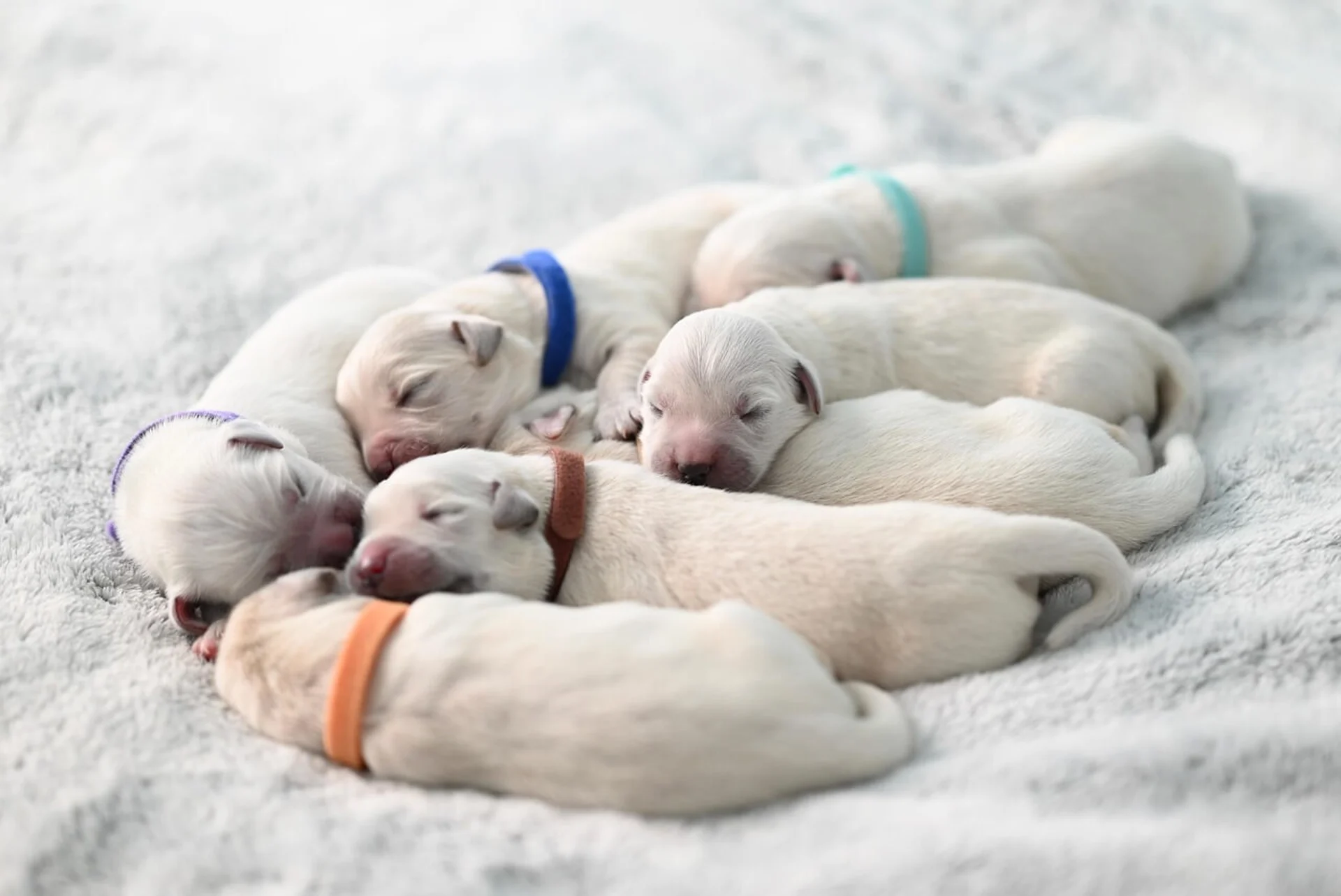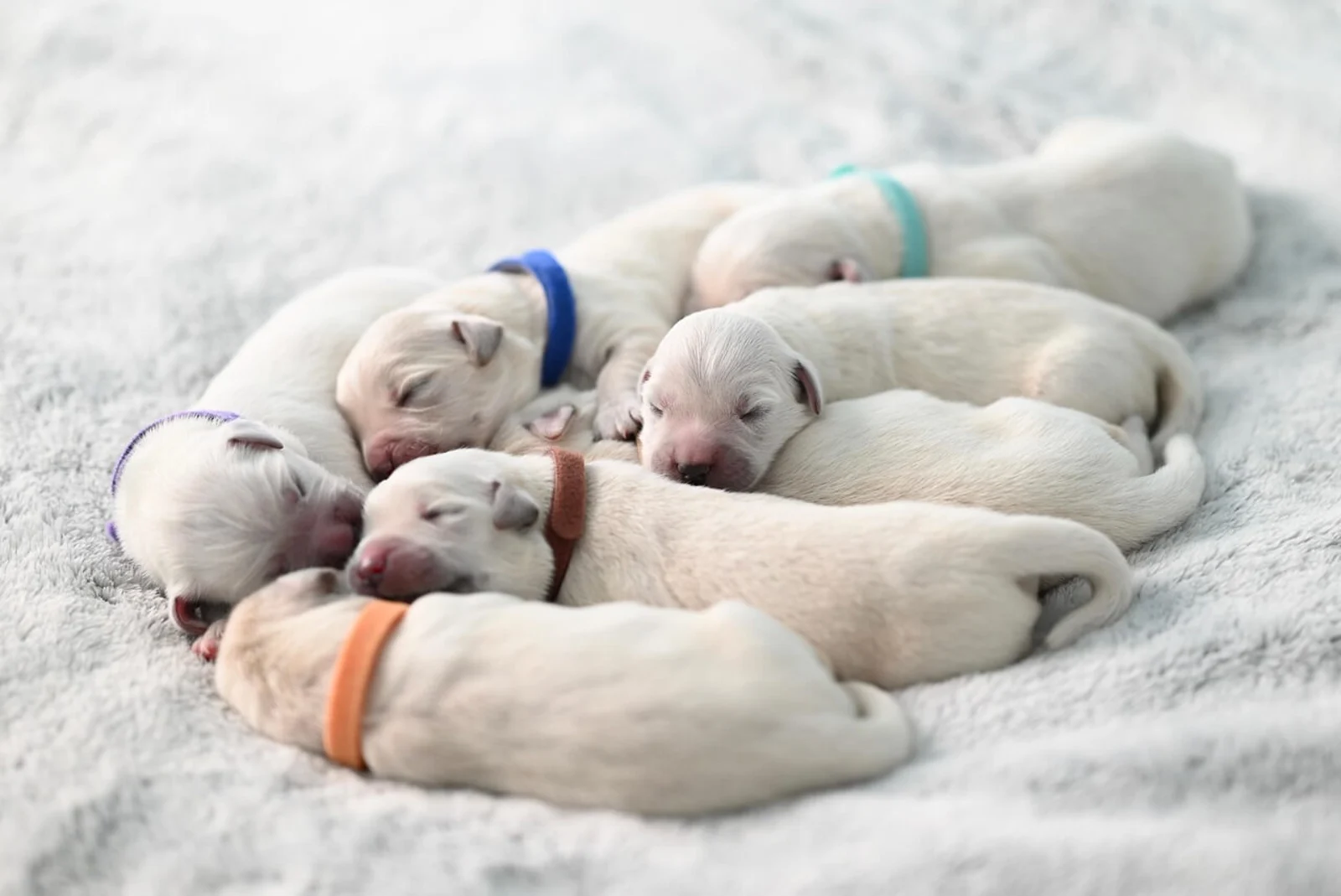
Neonatology in Dogs: A Good Start in Life
Dr. med. vet. FVH Tobias Vögtli
22.09.2025
Neonatology in Dogs: A Good Start in Life
The first days of a puppy’s life are critical, as they determine how securely the puppy starts out and whether it can develop healthily. Neonatology, the medical care of newborn animals, plays a central role. As small and inconspicuous as a puppy may seem at first, its needs are considerable.
In this article, you will learn what matters in the first days and weeks and how you can give your new family member a safe and healthy start in life, together with your veterinarian and the practice team.
What should be checked immediately after birth

Puppyhood: Health check after birth
Right after birth, a brief initial health check is worthwhile:
- Are all limbs and both eyes present and normal?
- Are there any visible malformations?
- Does the heart beat regularly and without murmurs?
- Is the palate intact (no cleft palate)?
Cleft palates in particular are often detected late and can have serious consequences. Heart murmurs or other abnormalities can also be hard to hear during the first days. We therefore recommend a house call by a veterinarian soon after birth.
Weight gain: spotting early whether all is well
One of the most important indicators of a puppy’s health is continuous weight gain. If it is absent, quick action is needed.
Possible causes include:
- The dam produces no milk or too little milk.
- The puppy shows no suckling or only a weak suckling reflex.
- There is an underlying health problem.
Puppies that do not gain weight, or even lose weight, usually need immediate supplementation with an appropriate puppy milk replacer, ideally under veterinary guidance. Correct technique when feeding by bottle or feeding tube is also crucial.
When the mother does not accept her young

À l'âge de chiot : lorsque la mère n'accepte pas son petit
In most cases, maternal behavior is instinctive. However, especially after a cesarean section or in very young dams, the mother may not accept her puppies.
Typical signs include:
- No interest in the puppies
- No licking or nursing
- Restlessness or aggressive behavior toward the young
In such cases, it may be necessary to guide or partially take over maternal care. It is important to discuss the situation with a veterinarian before intervening.
Warmth in the whelping box: a necessity
Newborn puppies cannot regulate their body temperature on their own. A stable ambient temperature is therefore vital.

Puppyhood: Warmth in the whelping box: a necessity
The ideal temperature in the whelping box during the first days is 29 to 32 degrees Celsius. It can then be reduced step by step. Pay special attention to constant warmth at night. Heat lamps can help but must always be installed at the prescribed distance to prevent overheating. It is also important that the mother can move away from the heat at any time and that the puppies can reach cooler areas if they feel uncomfortable.
When do the eyes open?
A natural developmental step many animal lovers eagerly await: the opening of the eyes.
This usually happens between the tenth and fourteenth day of life. If the eyes open too early or are stuck together, a veterinarian should check whether an infection is present.
Early parasite prophylaxis
Puppies can become infected with roundworms in the womb or via the mother’s milk. Early deworming is therefore important, usually starting from the second week of life.
Depending on the living conditions and health status, further treatments follow at tailored intervals. This creates the best conditions for healthy development.
A good start in life is not a given, but it can be shaped. With the right preparation, medical support, and careful observation, you can lay the foundation for a healthy dog’s life in the very first days.
If you have questions about birth, rearing, or the first weeks of a litter, we are here for you with experience, empathy, and medical expertise.